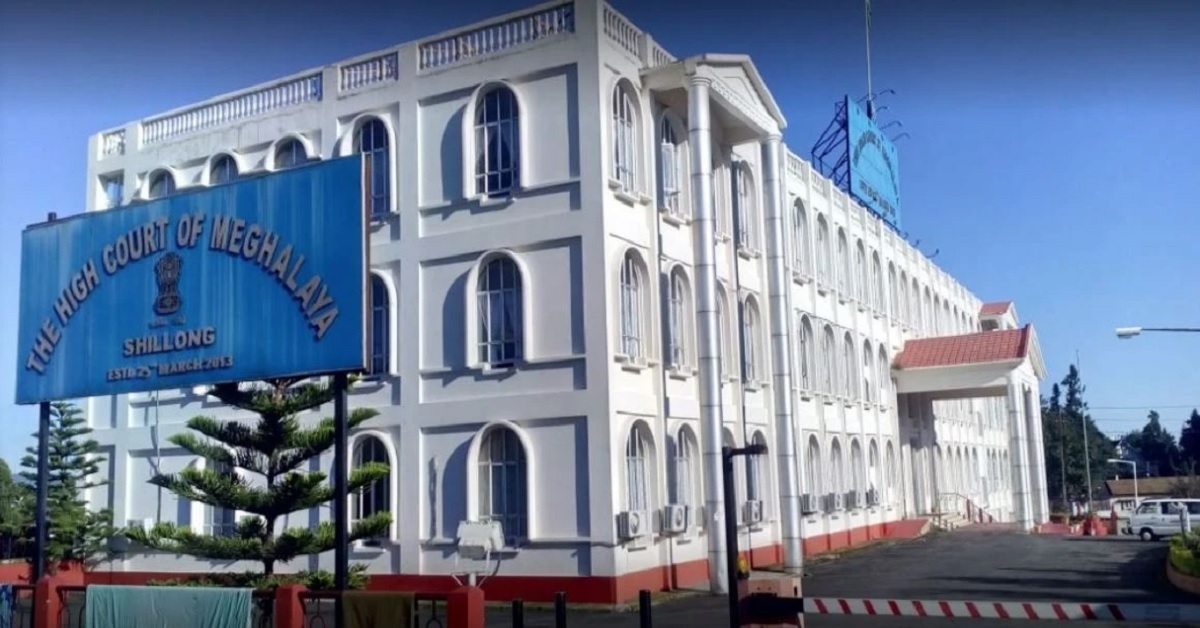The Bench of Chief Justice Sanjib Banerjee and Justice W Diengdoh of Meghalaya High Court were dealing with an appeal against conviction of a tuition teacher under the Protection of Children from Sexual Offences Act, 2012 (POCSO). A 9-year-old boy had alleged that the tuition teacher raped him, which amounts to aggravated penetrative sexual assault under POCSO. The convict appealed against the conviction stating that the prosecution failed to interrogate some other witnesses to the incident. However the Division bench held that such acts are committed stealthily and hence the law requires the allegation of the survivor to be taken seriously and, if found to be credible, to accept the same.
Background:
The survivor boy used to take coaching classes from the accused person. But he started to sexually assault the boy whenever his mother was not present.
The accused tuition teacher was booked under Section 6 of POCSO read with Section 506 of the Penal Code, 1860 (IPC). He was convicted by the lower Court and hence filed an appeal.
Court held:
The Court noted that the survivor boy’s testimony to the doctor and in the trial court was consistent.
Further, the court noted, “however depraved a person may be to sexually molest another person, he may not be foolish enough to indulge in such an act in open public view. Such offences are committed stealthily or surreptitiously when the survivor is alone or by luring the survivor to a secluded spot.” (Para 19)
The testimony of the boy was completely reliable and it was further corroborated by his medical examination through which evidence of sexual assault was found.
The court also noted that the accused should stop taking the defence of lack of witnesses to sexual assault/ rape. The court said that it is difficult for a child to cook up such stories out of nothing and for the same to be consistently repeated.
“When the survivor is a child, it is difficult to imagine that a story would be conjured up out of nothing and the same would be consistently repeated. Thus, when the survivor is a child of, say, up to 11-12 years of age, unless the court finds the child to be precocious enough to make out a story and consistently repeat the same, the fact that there may not have been any witness to the incident of sexual assault may not, by itself, let the accused off the hook.”(Para 20)
The High Court did not find any merit in the appeal and upheld the decision by the Trial Court.
Significance of the Judgment:
Section 6 of POCSO discusses the punishment for penetrative sexual assault which ranges 20 years to life imprisonment or death. While section 506 IPC provides punishment for criminal intimidation for two years; or fine.
This judgment is quite significant since, as the court rightly noted, the accused are usually let off the hook for lack of witnesses for their acts. At a time when wrestlers are protesting against inaction/ slow action by the Delhi Police against multiple allegations against the Wrestling Federation of India (WFI) Chief, Brij Bhushan Sharan Singh. 10 complaints of molestations and 2 FIRs have been recorded against him. Out of this, one of the survivors is a minor girl and the case has been filed under POCSO Act for aggravated sexual assault.
Aggravated sexual assault is defined under Section 9 and 10 of the POCSO Act. The punishment for which is no less than five years.
The offences under POCSO are cognizable and non-bailable and the accused are usually arrested. A Supreme Court lawyer, Aparna Bhat was quoted by the Print as saying,
“The reason an offence gets identified as aggravated is because of the position a person is holding, because it is a position of trust, and a position of authority in an organisation. In this case, there was a position of trust because he held an official position in an organisation which was supposed to be looking after these wrestlers. These people also knew who this person was, so there are two positions of trust that the accused would have allegedly violated…. Ordinarily, in such cases, the police take action and the person is identified. And then they have to take formal bail from the court.”
The Meghalaya High Court judgment may be read here:
Related:
Seers in Ayodhya raise demands to amend POCSO Act, deem that it is being “misused”
1.9 lakh POCSO cases pending in Fast Track Courts: Ministry of Women and Child Development
Protesting wrestling champs meet union sports minister, 2nd meet with govt in 5 days
FIRs suggest wrestlers had informed PM about their repeated sexual trauma in 2021
Battling the Indian sports industry: the cries for justice by women
